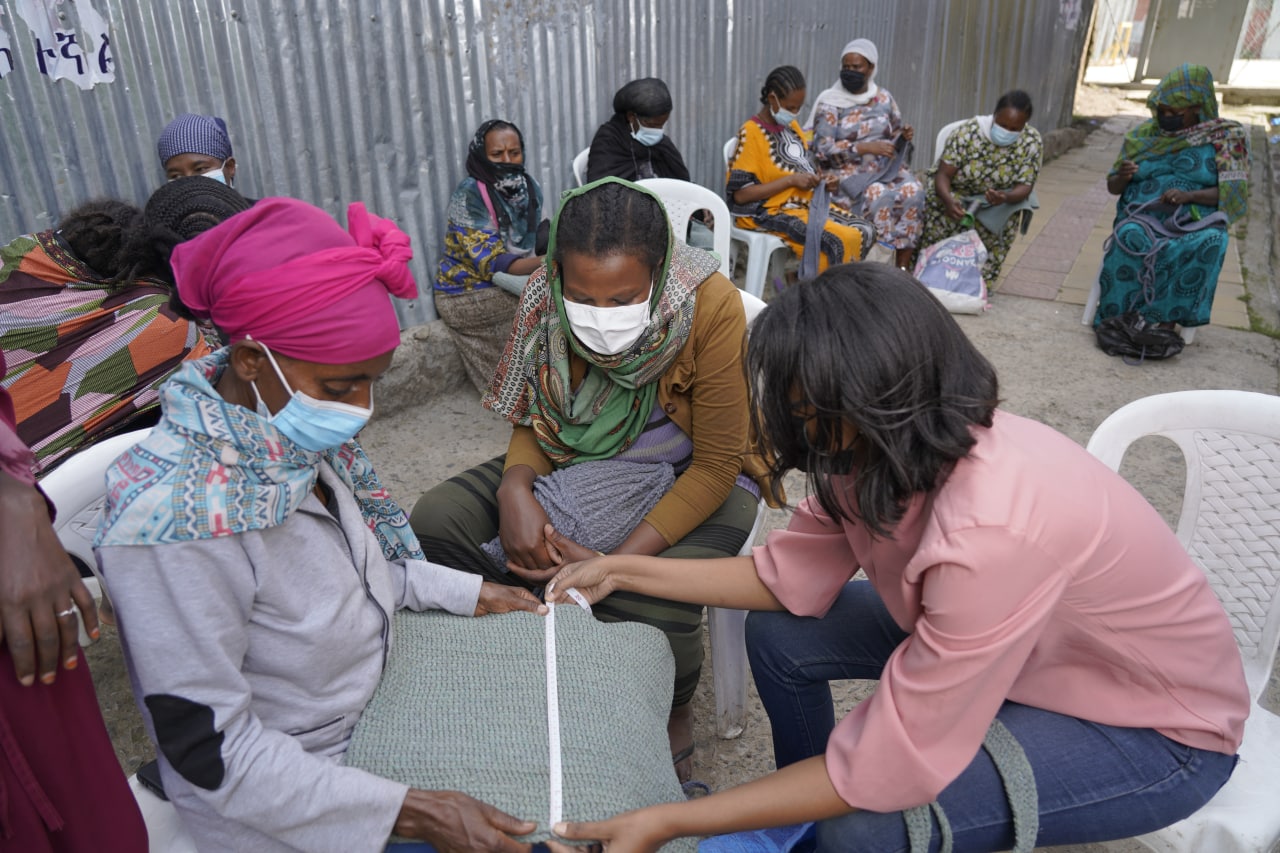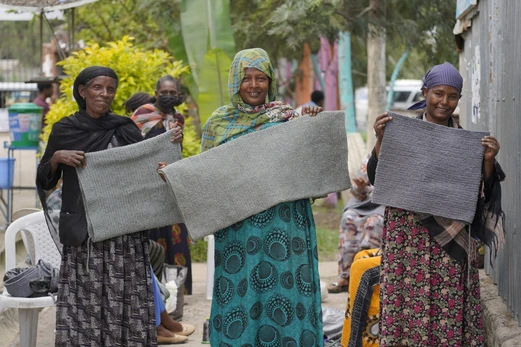Fast fashion is speeding up our planet's deterioration but zero waste initiatives are redesigning the industry
In light of France’s landmark “Fast Fashion” bill, we speak to our Ambassador, Kidist Gebrewold, about why we must slow down the fast fashion industry.
What do Ethiopia and France have in common? They both are making strides to disrupt the fast fashion industry.
Landmark legislation against fast fashion
In March 2024, France’s lower house of parliament unanimously approved a landmark bill that, if approved by the Senate, will see France become the first country in the world to legislate against fast fashion.
Although the bill won’t see a complete ban on the production and selling of fast fashion in France, it will permanently ban adverts for fast fashion brands and add an environmental surcharge of €5 on every fast fashion item produced in a bid to make consumers and producers think twice about their fashion choices.
Across the world, Kidist Geberwold is in Addis Ababa, Ethiopia, fighting fast fashion by turning raw fabric into fashionable bags through her organisation, Tuba Ethiopia.
“Although we identify ourselves as a manufacturing company rather than a fashion company, we believe that by producing sustainable raw materials and employing sustainable production methods, we can contribute to making the world a better place,” says Kidist.

The actual cost of low-price fashion
“In March 2017, there was a garbage slide in Addis Ababa which claimed the lives of more than 115 people,” explains Kidist. “One of the reasons for this tragedy was the existence of plastic bags in the garbage. At that time, I was an Environmental Engineering student, and I thought we could eventually replace plastic shopping bags by producing eco-friendly alternatives.”
Analysis by Business Insider shows that fashion production makes up 10% of total global carbon emissions, and according to the Ellen MacArthur Foundation, the plastic used for packaging makes up 26% of the total volume of plastics created globally each year. Although making fashion purchases may give us an immediate endorphin high, these statistics beg the question, is the actual cost of fast fashion worth it?
Fast-tracking the end of fast fashion through zero-waste initiatives
Kidist’s journey began with making paper bags to move people in Addis Ababa away from using plastic. This progressed to making fabric bags, and Tuba Ethiopia is now a zero-waste social business with the aim of producing environmentally friendly fashion products throughout all stages of the production process.
“Zero waste is minimising waste at its source,” says Kidist, “at Tuba Ethiopia, we produce Tuba bags using raw materials consisting of 30% recycled materials and 70% cotton yarn.”
In addition to selling beautifully crafted bags, Kidist has educated 500 people in her community about the importance of reducing, reusing, and recycling their materials. “By giving precedence to refuse, reuse, reduce and recycle, zero waste not only minimises environmental impacts but also conserves natural resources, decreases greenhouse gas emissions, and promotes a more resilient business model,” she says.

Disrupting more than just the fast fashion industry
In recent years, the news has been riddled with concerning reports on the working conditions in the fast fashion industry. This includes, but is not limited to, child labour, hazardous working environments, and low wages. The fast fashion industry is violating the planet and people’s human rights.
Through Tuba Ethiopia, Kidist isn’t just helping consumers buy more sustainably; she is also providing quality job opportunities to women and youth in Ethiopia, where there are 2.35 million unemployed people.
“We provide job-related skill training and raw materials for our employees, who work from home, strengthening their social lives and family bonds. Most importantly, this approach helps reduce our employees' and customers' carbon footprints when using our products.”
Kidist employs 30 people at Tuba Ethiopia with plans to increase her staff over the next five years.

The future of fast-fashion
France’s bill to legislate against fast fashion is undoubtedly a positive step towards halting the fast-fashion industry, but it is only the beginning. It is forecasted that by 2027, the fast fashion industry will be worth 185 billion US dollars. With leading sellers, such as Shein, reporting 23 billion US dollars in global revenue in 2022 alone, it doesn’t seem like the consumer appetite for fast fashion is slowing down.
“Humans are the ones generating waste, and if we don’t go along with nature, it will eventually lead to our destruction,” warns Kidist.
How can you support zero-waste initiatives?
The impact of fast fashion is both human and environmental, so we must all play our part in stopping its production and opting to buy from zero-waste, sustainable organisations.
“You can support zero waste initiatives by simply researching, promoting, and buying from organisations that are good to the planet and their workers,” advises Kidist.
If you would like to support Tuba Ethiopia, you can visit their website.
Stay updated with Kidist and her work with Tuba Ethiopia by following her on social media: Facebook, Instagram, and LinkedIn.
